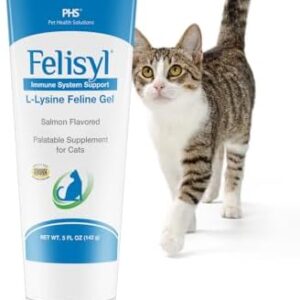
As a cat parent, it’s important to prioritize your furry friend’s health and well-being. One of the best ways to do this is by scheduling regular health checkups with your veterinarian. Just like humans, cats need routine checkups to ensure they are healthy and to catch any potential health issues early on. In this article, we’ll discuss some tips for keeping your cat healthy through routine health checkups.
First and foremost, it’s essential to establish a relationship with a trusted veterinarian. Find a vet that you feel comfortable with and that has experience working with cats. Building a good rapport with your vet will make it easier to communicate any concerns or ask questions about your cat’s health. Your vet can also provide guidance on when your cat should come in for checkups and what preventive care measures they recommend.
Regular checkups typically involve a physical exam, where the vet will check your cat’s weight, temperature, heart rate, and overall appearance. They will also inspect your cat’s eyes, ears, teeth, and skin for any signs of problems. Routine blood tests and other diagnostic tests may also be recommended, especially for senior cats or those with underlying health conditions.
During your cat’s checkup, don’t be afraid to ask questions or voice any concerns you may have. Your vet is there to help and can provide valuable information on how to care for your cat at home. They can also recommend specific dietary needs, exercise routines, and preventive medications to keep your cat healthy.
In between checkups, there are things you can do at home to help maintain your cat’s health. Regularly grooming your cat helps to keep their coat clean and free of mats. It also gives you an opportunity to check for any abnormalities such as lumps, bumps, or parasites. Brushing your cat’s teeth regularly can also prevent dental issues like gum disease and tooth decay.
Another key aspect of keeping your cat healthy is providing them with a balanced diet. Cats are obligate carnivores, which means their diet should consist mainly of meat. Make sure to feed your cat high-quality cat food that is appropriate for their age, size, and health status. Avoid feeding your cat table scraps or human foods, as these can be harmful to their digestive system.
Regular exercise is also crucial for your cat’s overall health. Indoor cats especially can benefit from interactive toys, climbing structures, and regular play sessions to keep them active and mentally stimulated. Engaging your cat in play helps prevent obesity, relieves stress, and strengthens the bond between you and your furry friend.
In addition to physical health, don’t forget about your cat’s mental well-being. Environmental enrichment is important for cats to prevent boredom and loneliness. Provide your cat with scratching posts, cozy sleeping spots, and access to windows for bird-watching. Consider getting a companion for your cat if they are social and would benefit from having a feline friend.
Lastly, be mindful of your cat’s behavior and any changes in their habits. Cats are experts at hiding illness, so it’s important to be observant and notice any subtle changes in their eating, drinking, or litter box habits. If you notice anything unusual, contact your vet right away to schedule a checkup.
Ultimately, keeping your cat healthy through routine health checkups is a team effort between you and your veterinarian. By staying proactive and taking preventative measures, you can help ensure your cat lives a long and healthy life. Remember, your furry friend relies on you to provide them with the care and attention they need to thrive. So, make your cat’s health a priority and schedule their next checkup today. Your cat will thank you for it!






